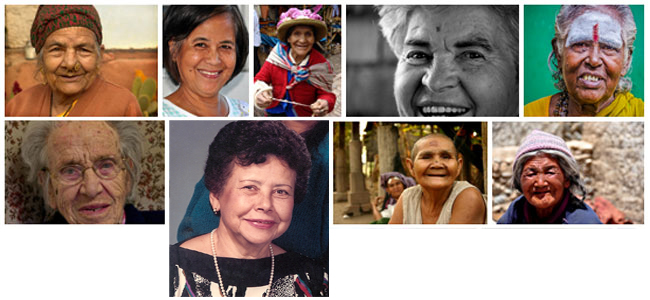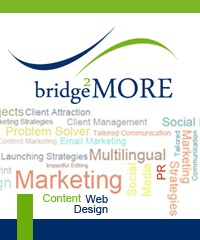Statistics confirm that many of us in the Boomer generation are currently, or will be dealing, with taking care of our parents at the same time we take care of our children. I have coached several clients who have had to deal with this issue. My husband and his siblings dealt with a mother who was diagnosed with dementia, who lived many years with this before passing away. So this process is familiar to me; even more so now as I become one of the statistics.
My mother has great difficulty remembering what was just said or what recently occurred, whether it is a conversation, a phone call, her pills or names and events. Yet she remembers events in the past and enjoys telling these stories as if in the telling she can touch those people and emotions.
I find myself at a new threshold with her, afraid to open the next door. Can I support her as she enters her twilight, a silence and peace that she has explicitly told me she welcomes? Is it a matter of her surrendering to the cycle of life and death with grace? Or is it is my acknowledgement that a life has been well-lived, that the whole of life is not dependent so much on the duration of life but rather on the wholeheartedness in which one enters each moment?

We have a culture that describes life’s passages in diagnostic terms. In a retreat I facilitated for a Hospice group they articulated one of the guiding principles as living-focused dying; meaning moving away from the denial of death and engaging with the death process with great compassion and acceptance. And it is in that place of acceptance, that regardless of the circumstances, we may all be healed, even as we die.
Stepping back, I see the greater the attachment the greater the pain. Could it be that in her soul’s wisdom is helping me to adjust and that this thing called dementia is a way of easing into a final letting go? Paradoxically, I consider she is the one completely present in the moment. It is I who am out of step, holding onto the past and frightened of the future.
Am I able to come to see the “beingness” of what is there without imposing the judgments, the perceptions, the categorizations my mind has constructed, that cause me pain and suffering? Can I be present to her, honor and love her, right here, right now and stop fighting what is?

My mother may not be physically dying, but this thing called dementia has been to my mind, a loss, robbing me of the relationship we have had. So it felt. But it’s not true. What is here and will always be here, will be a deep connection to her being in whatever form it takes. My connection is a heart connection and the truth is, it doesn’t require as much as my mind requires.
When next I see her, I will laugh at the funny stories she tells me, over and over again, about her life. I will share a glass of wine with her over a meal we cook together. I will let her know that its ok for her to be in whatever moment she is in, and that forever, I will be happy to be in that moment with her, and as an extension with anyone.
To acknowledge the moment, to live fully in this instant, engaging in my life moment to moment, compassionately observing what is right there in front of me, opening myself to sorrow as much as to joy, to discomfort as equally as ease, is maybe the greatest lesson I will ever learn from my mother.

By Alicia M. Rodriguez, M.A., P.C.C.
Alicia is the founder of Sophia Associates, Inc., an international executive and leadership coaching practice dedicated to enhancing leadership competencies, strengthening executive performance levels, creating opportunities for personal learning and developing high performing teams. More info
Visit her site: Sophia-associates.com
Images: flickr: (1)sukanto_debnath, (2)therealbrute, (3)miguelveraleon, (4)lazalek, (5)lingeswaran / (1)dickdotcom, (2)Author's mother, (3)joannao, (4)praveenpn4u // (1)knobil, (2)lemuelinchrist, (3)fbester, (4)jenny-pics // (1)sukanto_debnath, (2)cyclingrelf, (3)tazrian, (4)bobby-james (CC BY 2.0)





